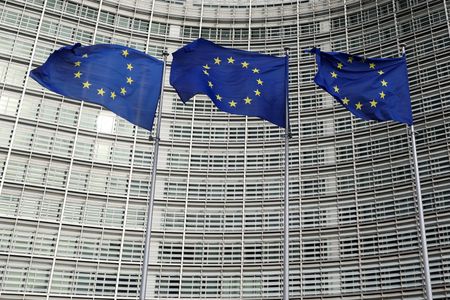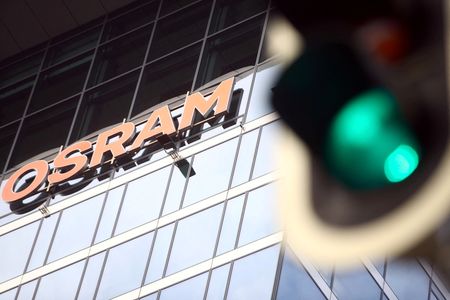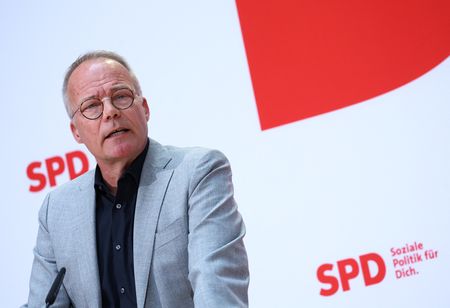By Shashwat Awasthi
(Reuters) -Luxury carmaker Aston Martin said on Wednesday it was limiting exports to the United States to offset the impact of U.S. tariffs that have battered the global auto industry.
It reported a narrower-than-expected first-quarter loss and forecast further improvement the following quarter, helping its shares rise as much as 4.2% in early trading before trading roughly flat by 0825 GMT.
While the brand associated with fictional secret agent James Bond did not give a reason for its optimism, Bernstein analysts said ample stock of its vehicles at U.S. dealers gave it an edge over its competitors.
“Headlines of no change to full-year guidance and a small free cash flow beat …is the key message and should be well taken,” they added.
The positive update stood out on an otherwise gloomy day for European carmakers as Stellantis, Porsche AG, Volkswagen, and Mercedes-Benz pulled or cut their forecasts due to tariff-driven turmoil.
“We are carefully monitoring the evolving U.S. tariff situation and are currently limiting imports to the U.S. while leveraging the stock held by our U.S. dealers,” CEO Adrian Hallmark said in the company’s quarterly report.
The U.S. made up more than a third of Aston Martin’s revenue last year.
Global automakers have been hit hard by 25% tariffs on all vehicles and foreign-made auto parts imported to the U.S. – a key escalation in a broader trade war that threatens to disrupt the global economy. Some tariffs were eased on Tuesday.
The more than 110-year-old company reaffirmed its 2025 forecast of modest wholesale volume growth as it reported an adjusted pretax loss of 79.8 million pounds ($106.8 million) for the three months to March 31, down from 110.5 million pounds a year ago, and below analysts’ average estimate of 89 million pounds.
The company has struggled for traction since its market debut in 2018, leading to years of losses and ballooning debt, which has prompted multiple equity raises and job cuts.
($1 = 0.7469 pounds)
(Reporting by Shashwat Awasthi; Editing by Sherry Jacob-Phillips, Saad Sayeed and Tomasz Janowski)










